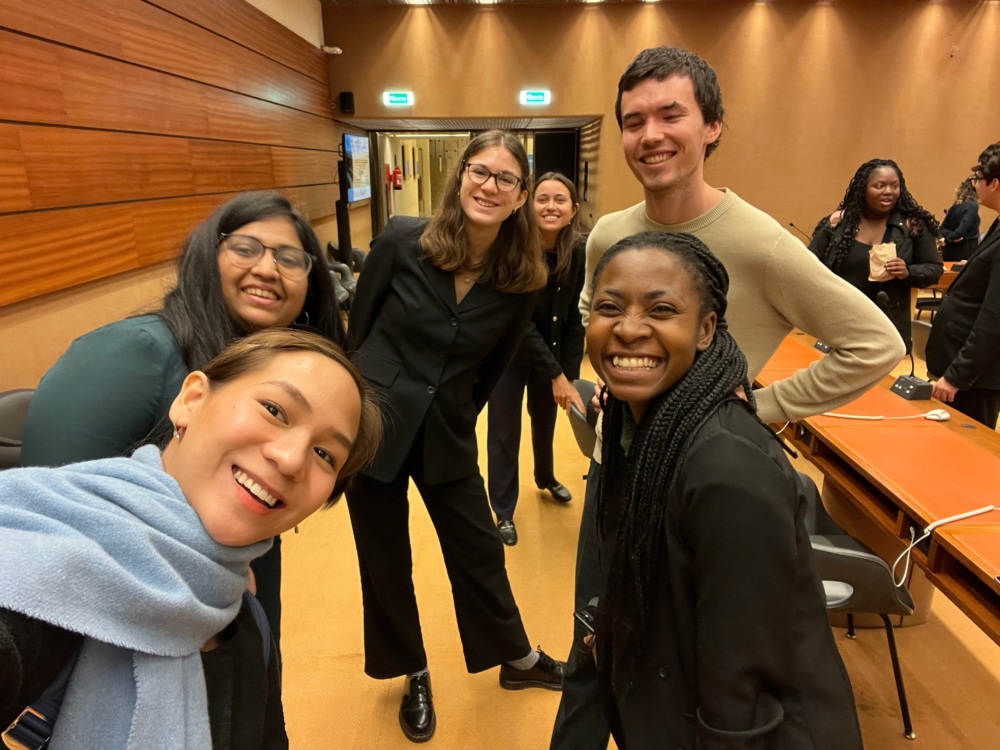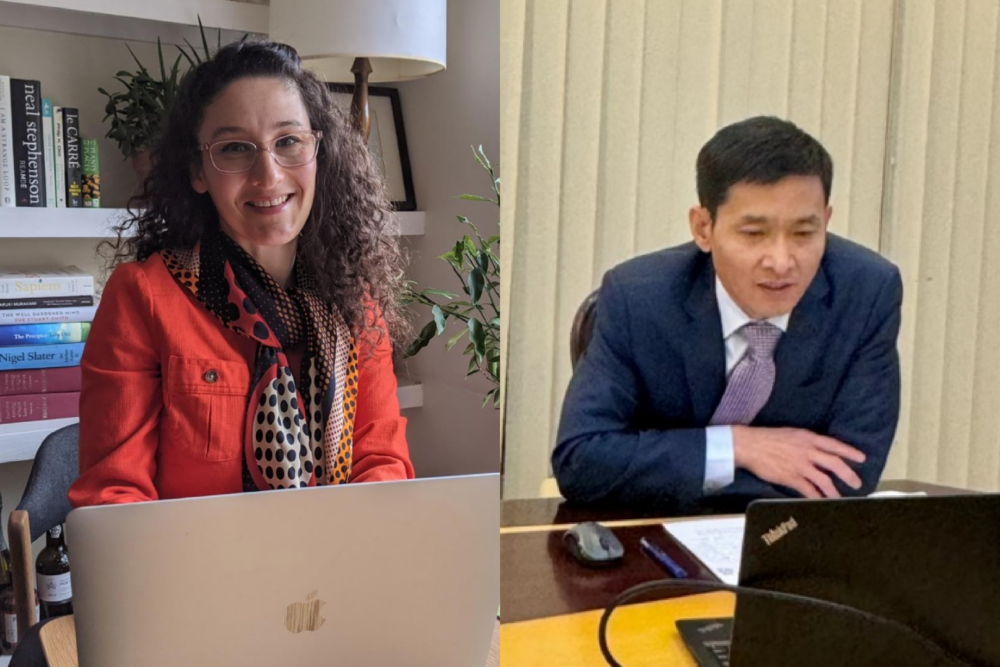
Apply for the 2024 NTI | bio Next Generation Biosecurity Delegation
NTI | bio will bring a 2024 Next Generation Biosecurity Delegation of early-career professionals to the Biological Weapons Convention (BWC) meetings from August 19 – 23.
WHO-NTI Establish Global Emergency Outbreak Response Fund
Former Senator Sam Nunn, Co-Chairman of the Nuclear Threat Initiative, and Dr. Gro Harlem Brundtland, Director-General of the World Health Organization, today announced the formation of a rapid response fund to strengthen the global response to infectious disease outbreaks, whether naturally occurring or from the release of biological weapons. The WHO-NTI Emergency Outbreak Response Fund will ensure that response teams can be on the ground within 24 hours of a detected outbreak – wherever it occurs around the globe.
“Crucial hours lost in the early days of a disease outbreak can mean the difference between a handful of cases and a major epidemic,” said Dr. Brundtland. “As soon as an outbreak occurs, it is critical to get people on the ground as soon as possible. This revolving fund will enable WHO to provide medical experts and equipment immediately.”
Rapid detection, identification, and response are key to saving lives and controlling infectious disease – whether caused by an incident of bioterrorism or naturally occurring infectious disease. A rapid response may also make the difference in identifying the source of the outbreak, and even whether the outbreak was intentional or naturally occurring. Strategies to enhance preparedness against both of these threats depend on the same systems of public health and medical care.
“The nexus between health and security has become increasingly clear,” said Senator Nunn. “Diseases don’t recognize national boundaries. In today’s global world, it is in our own health and security interest to immediately contain an outbreak wherever it occurs around the world. The fight against infectious disease has always been a moral imperative. Today, it is also a security imperative."
The WHO-NTI Emergency Outbreak Response Fund, established in the amount of $500,000, removes financial barriers to an urgent response and will allow the WHO to mobilize immediately.
Until the establishment of the WHO-NTI Emergency Outbreak Response Fund, no contingency funds were readily available to respond to international public health emergencies. Mobilizing international teams and materials such as vaccines, drugs and supplies required pledges of support from humanitarian donors. With limited funds available for humanitarian crises, time was lost before firm pledges became available to fund operations. This new fund will ensure that there is a more rapid response to epidemic meningitis, to yellow fever outbreaks and to viral haemorrhagic fevers, like Ebola, or the deliberate use of biological weapons. The fund is intended to be replenished by donations from traditional humanitarian donors. WHO and NTI encourage additional funding from member nations and other nongovernmental organizations to support this initiative and to recognize the shared humanitarian responsibility and security impact of outbreaks. Replenishment funding will be critical to the Fund's success.
The WHO-NTI Emergency Outbreak Response Fund will be a key operational element of the Global Outbreak Alert and Response Network, coordinated by the WHO Alert and Response Operations Centre in Geneva. The network operates 24 hours a day, gathering and assessing intelligence on outbreaks and rumors of disease. With this fund in place, when an outbreak is determined to be of international concern, teams of experts from around the world can be on the ground within a day.
The Nuclear Threat Initiative is a charitable organization working to reduce the threats from nuclear, biological and chemical weapons. NTI brings together people with different ideological views around a common ground mission focused on immediate actions to close the gap between the global threats and global response. Co-chaired by CNN founder Ted Turner and former Senator Sam Nunn, NTI is governed by an international Board of Directors with members from nine countries. Additional information can be found at www.nti.org.
The World Health Organization, the United Nations specialized agency for health, was established in 1948. WHO's objective, as set out in its Constitution, is the attainment by all peoples of the highest possible level of health. Health is defined in WHO's Constitution as a state of complete physical, mental and social well-being and not merely the absence of disease or infirmity. Additional information can be found at www.who.org
###
Sign up for our newsletter to get the latest on nuclear and biological threats.
NTI | bio will bring a 2024 Next Generation Biosecurity Delegation of early-career professionals to the Biological Weapons Convention (BWC) meetings from August 19 – 23.
NTI | bio convened more than 25 high-level biosecurity professionals, AI experts, and policymakers for the inaugural meeting of the International AI-Bio Forum.
The China Arms Control and Disarmament Association and NTI jointly convened a virtual Track II Dialogue, a forum to promote mutual understanding among Chinese and U.S. experts about urgent and emerging biosafety and biosecurity risks.

